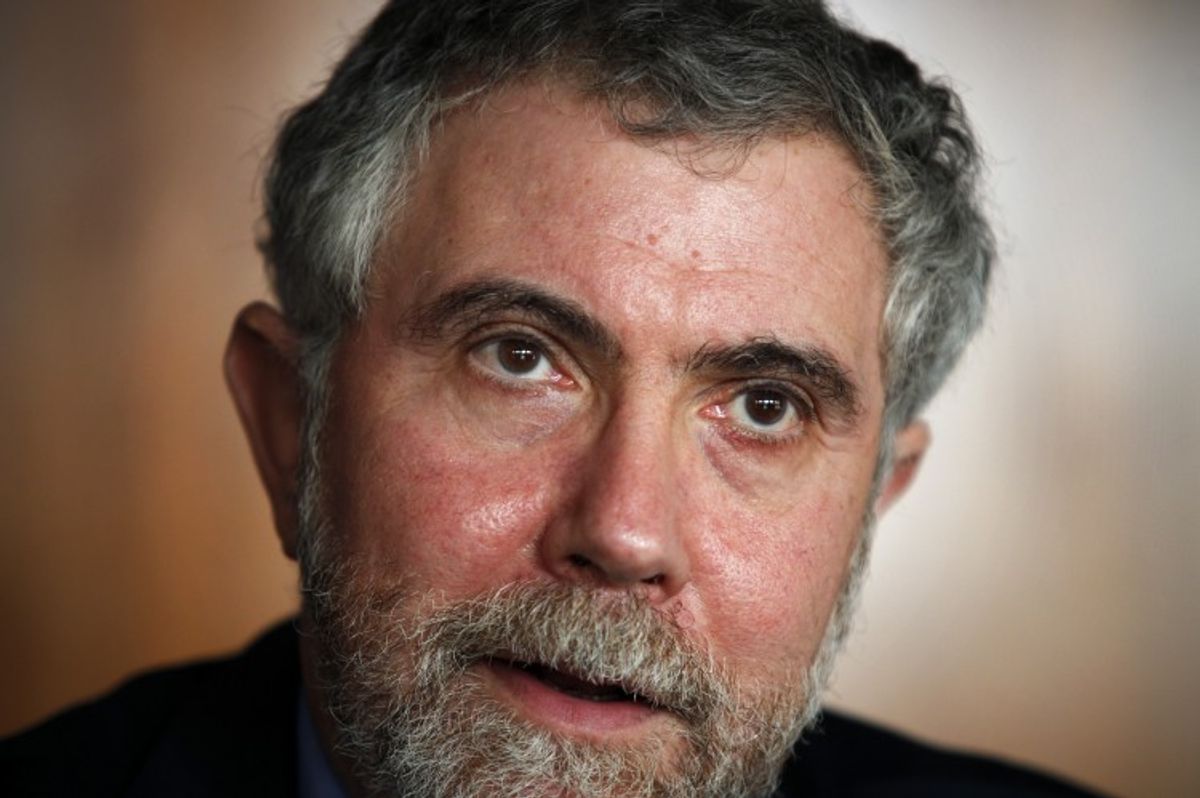The distribution of power -- not shortcomings in American education -- explains skyrocketing economic inequality, Nobel Prize-winning economist Paul Krugman writes in his New York Times column today.
Summarizing the conventional wisdom, Krugman notes that everyone from corporate chieftains to centrist think tanks is fond of the notion that American workers suffer from a "skills gap" that leaves them ill-equipped to keep pace with rapid technological change. Train workers for the jobs of tomorrow, the narrative goes, and you'll be well on your way to ameliorating America's inequality problem.
But while education is undeniably vital, Krugman notes that this narrative is divorced from reality. First, he points out, productivity growth has slowed after soaring in the mid-1990s; purveyors of the "skills gap" storyline, however, would have you believe that we're in an age of inexorably quickening technological change.
Moreover, if the conventional wisdom were true, employers should be offering "premium wages" to highly educated workers, Krugman contends. But they aren't. And then there's the inconvenient fact that well-educated workers haven't seen their inflation-adjusted earnings budge since the 1990s.
What gives?
In the final analysis, Krugman posits, people who want to make inequality a story about education are skirting discussion of a much more fundamental issue -- how power is distributed in this country:
So what is really going on? Corporate profits have soared as a share of national income, but there is no sign of a rise in the rate of return on investment. How is that possible? Well, it’s what you would expect if rising profits reflect monopoly power rather than returns to capital.
As for wages and salaries, never mind college degrees — all the big gains are going to a tiny group of individuals holding strategic positions in corporate suites or astride the crossroads of finance. Rising inequality isn’t about who has the knowledge; it’s about who has the power.
Now, there’s a lot we could do to redress this inequality of power. We could levy higher taxes on corporations and the wealthy, and invest the proceeds in programs that help working families. We could raise the minimum wage and make it easier for workers to organize. It’s not hard to imagine a truly serious effort to make America less unequal.
But given the determination of one major party to move policy in exactly the opposite direction, advocating such an effort makes you sound partisan. Hence the desire to see the whole thing as an education problem instead. But we should recognize that popular evasion for what it is: a deeply unserious fantasy.

Shares